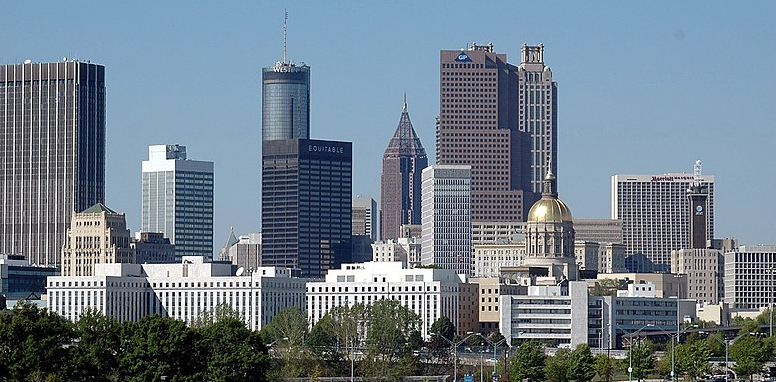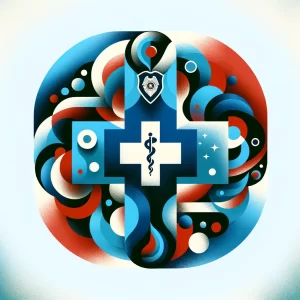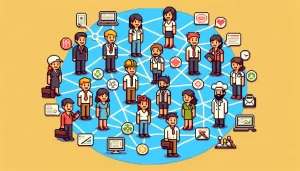
Policing as a Public Health Crisis
The Impact of ‘Cop City’ on Communities
In the heart of DeKalb County, Georgia, a growing controversy has captured national attention. Atlanta’s proposed police training facility, known as “Cop City,” has sparked significant concern among public health researchers, activists, and community members. This development, which aims to expand police training efforts, sits at the intersection of critical issues such as public safety, systemic racism, and community health. But beyond these headlines lies a more profound question: How does increased policing affect public health, especially in marginalized communities? A recent research brief from Human Impacts Partners explores this relationship.
The Public Health Toll of Policing
At first glance, it may seem unrelated to think of policing as a public health issue. However, research shows that policing practices have far-reaching consequences on the health and well-being of communities, particularly those already facing systemic inequities. Studies demonstrate that policing practices—such as stop-and-frisk, surveillance, and increased incarceration—disproportionately harm Black, Indigenous, and other people of color (BIPOC).
Public health literature underscores that policing is not just a matter of public safety but is deeply intertwined with educational development, economic well-being, and social engagement. Take, for example, a study of young men stopped by police in New York. Those who experienced frequent police stops reported higher levels of trauma and anxiety than those stopped less frequently. The mental and emotional toll of these encounters exacerbates existing health disparities and creates long-lasting harm.
Expanding ‘Cop City’ and its Health Implications
The construction of ‘Cop City’ is seen by many as an investment in expanding these harmful policing practices. The proposed facility would train police officers to increase the presence of law enforcement in communities, particularly in areas with a majority of Black residents. In DeKalb County, where 54% of the population identifies as Black, residents are rightfully concerned about how this increased police presence might impact their daily lives
For communities that already experience higher levels of surveillance, the expansion of policing means a greater risk of health-related harms. Beyond mental health, these harms extend to economic impacts and reduced access to social services, as marginalized groups face increased criminalization. Furthermore, heightened police presence in these communities can lead to more arrests, which in turn increases exposure to incarceration—a known driver of adverse health outcomes such as substance abuse, chronic illnesses, and mental health disorders.
A Need for Restorative Justice
Despite the well-documented harms of traditional policing methods, alternatives such as restorative and transformative justice have emerged as promising strategies for promoting accountability and community safety. These approaches, rooted in Indigenous practices, focus on healing and reconciliation rather than punishment. Evidence shows that restorative justice methods lead to lower recidivism rates and greater satisfaction among both victims and offenders.
When compared to punitive approaches, restorative justice fosters a sense of fairness and significantly reduces the likelihood of individuals re-entering the criminal legal system. This approach doesn’t just address the immediate issue of crime but seeks to heal the underlying causes of harm. For example, community-based programs that use restorative practices have reported improved mental health outcomes, particularly when individuals feel heard and understood in the resolution process.
Addressing the Racial Disparities
Policing in America has a long history of disproportionately targeting BIPOC communities, and the development of Cop City only exacerbates this issue. Studies reveal that Black Americans are incarcerated at five times the rate of white Americans, and this disparity is even more pronounced in states like Georgia. The more law enforcement expands in these areas, the deeper these racial disparities become, resulting in unequal access to justice and more harmful health outcomes.
The construction of Cop City also raises concerns about land sovereignty. The facility is set to be built on Mvskoke Indigenous land, which adds a layer of historical trauma and land dispossession to the mix. Indigenous leaders have publicly called for a halt to the construction, emphasizing the connection between policing, colonialism, and environmental degradation.
The Role of Public Health Professionals
As public health practitioners, it is crucial to recognize that policing isn’t just a criminal justice issue—it’s a public health crisis. Police violence, incarceration, and the criminalization of marginalized communities must be addressed through a public health lens. This perspective helps us see that the over-investment in policing, through projects like Cop City, comes at the expense of other critical social determinants of health such as education, housing, and employment.
Public health professionals can advocate for policies that reduce harm by investing in alternative models of community safety. This includes supporting initiatives that focus on harm reduction, violence interruption, and mental health services. Moreover, public health experts must play a role in ensuring that community members are involved in decisions about policing and public safety.
Join the Conversation
What do you think about the connection between policing and public health? Have you seen examples of how policing has impacted health in your community? Share your thoughts in the comments or on social media using the hashtag #PublicHealthJustice.
Be Part of the Change – Get Weekly Updates!
Stay informed and connected. Subscribe for free and share this blog to make a difference in public health with others. If you liked this blog, please share it! Your referrals help This Week in Public Health reach new readers.



